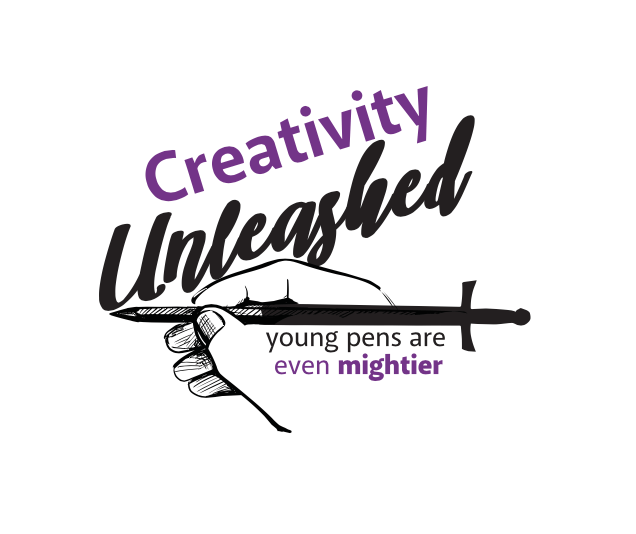The Art of Reconciliation
My father’s hands shook, struggling to hold the bouquet of impeccably red roses in full bloom. He hoped that the sharp, thorny flowers could act as a needle and stitch up the hole in his heart.
I followed closely behind, holding a transparent turquoise ring neatly tucked into its velvet cushion, ready to initiate the handoff just as we had meticulously perfected the day before.
My heart pounded as the plan of my own orchestration had finally reached its crescendo: whether I would triumph and reconcile my parents or leave without making any progress was yet to be seen.
********************
During an online math class, my life suddenly plunged into a washing machine. The madness began with bickering between my parents. To be fair, it wasn’t unusual, their fighting, so I wrote it off thinking they would make up by the end of the day. They always did. But this time, their shouting seeped through the soundproof walls of my bedroom. Though I couldn’t make out the specifics, it sounded ferocious.
The next noise I heard wasn’t a shout, but a crisp crack from a plate being thrown to the ground.
This was when I decided that an online math class was secondary to my duties as a son, and I ventured out of the safety of my room to de-escalate the situation.
When I opened the door, I was met with an alien landscape; my familiar living room had transformed into a battleground. Sharp pieces of silverware were scattered along the floor like landmines. Pieces of squashed fruit stuck to the walls, and the furniture sprawled out around no-man’s land like dead bodies. My beloved older brother knelt on the floor, begging our parents to stop the chaos, just as my father menacingly stood over him with a chair in his hands. The moment he slammed that chair into the ground, it, and my life, fractured into a thousand wooden splinters.
“Li hun!” was the only word I understood through the screaming, but that one word bore the weight of an entire speech.
Li hun:
divorce.
My father furiously stomped to the phone, and the entire house trembled beneath the weight of his angry feet. He called my grandparents despite knowing that they wouldn’t pick up: noon in the US was 3:00 AM in China. Perhaps he did this because his brain was processing too much information, and his body defaulted to autopilot.
Despite the turmoil happening around him, my father’s face remained tearless and stoic; the only emotion he showed was anger, while my mother wept like a newborn. I hated him for this. It seemed that he didn’t care that our family was hanging on the edge of a precipice.
When my father’s distraction moved his gaze away from us, my mother ran towards their room. She shouted through her tears: “Quick, let's leave this place!”
Rage and grief took the steering wheel of my mind, and I followed her. As if coming from a voice that wasn’t mine but absolutely was, I yelled at her: “I hate you!” And for a moment, I wondered why I had thrown these daggered words at her rather than my father. At this point, I couldn’t take it back.
Her eyes widened. Silence followed. I had never said that to my mother before, and I could tell the vitriol in the word had cut deep. The loud crying stopped, but her quiet rivers of tears continued. I softly apologized, but it was more to make myself feel better than anything.
By now, the shouting and breaking of objects had stopped entirely, and I moved, like my father when drunk, stumbling awkwardly in my room to pack my bags. I barely got in the car without falling.
Now that I think about it, I find fascination in what I noticed at the time – oddly, the weather outside was nice when we emerged from the pandemonium of the house. The sun shined brightly, signaling a good day to come. Basking in its warmth, I momentarily looked forward to the end of the school year. That’s right, I thought, I had planned to play basketball with my father after my online classes.
With my father. My father. My father. Would I ever see him again?
“We’re going to a friend’s house. She’s in China right now. I have informed her about the details.” My mother’s pragmatic voice pierced through my reverie.
In the car, my brother and I avoided eye contact, gazing vacantly out the window, our thoughts too heavy to speak. We had left the beast in the house.
Though we only drove down a couple blocks, we pulled into the driveway of a different world. The exterior of the house felt similar to our home; both hugged the ground, had a slightly arched roof, and were painted a shade of maroon. But the atmosphere could not have been more different. There was a damp heaviness in the air that certainly didn’t come from a lack of cooling.
And nobody wanted to address the pressing matter.
I laid on the couch to relax and recuperate my emotions, but my thoughts were disseminated like a pan of liquidy scrambled eggs. In the end, I gave up on thinking and decided to mindlessly work on some school homework. I welcomed the distraction. At nighttime, after dinner, I tried falling asleep in my new room, but I only ended up further scrambling the eggs. Finally, I walked into my mom’s room. She, too, was wide awake. I sassily complained to her about missing home.
Surprisingly, she shut me up by responding, “Alright, I’ll take you home.”
During the car ride, my mother repeatedly warned me: “Do not listen to your father’s ramblings. He can be very persuasive, but I assure you, all he talks is nonsense.” I nodded obediently. When I left the car, she waited in the driveway until I had entered the house. I spotted in her eyes through the windscreen that perhaps she had her doubts about her willingness to bring me back…
I walked in through the front door at midnight, and was welcomed by the old painting that hung at the entrance. I marveled at the scene that lay before me now. The inside of the house was spotless: not even a trace of the fight had been left, and the shattered chair along with the nightmarish memories were nowhere to be seen.
I found my father sitting on the couch with his head down as if he were sleeping, except his eyes were wide open. When he heard my footsteps, he lifted his head up, but didn’t bother to greet me. He simply muttered: “Come.”
He groaned and dragged himself into my parents’ bedroom, and I followed. He slowly positioned himself on the left side of the bed and commanded: “Lay down. Let's have a talk.”
I laid down in the middle of the bed, the same place I had slept years ago, sandwiched between my parents, after citing my fear of darkness as an excuse to snuggle in the warmth of my mom. She’d always pat my back and comfort me as I returned to sleep. Now, I stretched my right arm out to grasp the warmth of my mother, but emptiness had taken her place.
My father’s voice was weak and raspy, clearly worn out from his earlier shouting. “Why do you choose to follow your mother? Were you even aware of the circumstances of that fight?”
I didn’t know how to answer, so I remained silent.
“Is it because your mother knows how to cry and I don’t?”
There was merit in his question. Ever since I was little, I had observed this dynamic of crying; my mother cried both joyously and miserably, while I’d never seen my father shed a single tear. This wasn’t to say that he didn’t feel happy when my brother got accepted into college, or that he didn’t suffer through his fights with my mother, but instead, he chose to keep his emotions to himself, in some ways communicating to us that they weren’t worth sharing. Yet knowing all this, I remained silent.
My father joined the silent chamber with me, and stifling, suffocating air replaced the space in the room that was once taken up by our voices. We quietly laid side-by-side organized like two recently caught sardines staring up aimlessly, accepting our fate of being canned.
It was in this position that my reverie brought me to a memory – that of a previous fight between my parents, when my mother had expressed her disappointment of not having a wedding ring. I fell asleep, drowned in the deep thoughts crowding my mind.
The next morning, I awoke armed with a response to why I chose to follow my mother, and with a way to pave the upturned yellow brick road to reconciliation.
“Father, you are right that mother knows how to cry, but I know that deep inside, you share the same emotions of pain and grief – you just choose not to express them. I understand your frustration with mom, but I’m sure that you want to be reunited with her. I might have a way to do that.”
He looked at me with sad eyes and nodded, signaling for me to continue.
********************
We finally reached the house where my mother and brother were residing, and I trembled under the thought of the plan failing. When the door finally opened, my dad delivered the roses and my parents hugged tightly. My brother and I happily watched my parents cry. As it turns out, my dad lied. He was capable of crying – and it felt so significant to us all that he finally let himself do it.
My dad choked on his joy. “I’m sorry I couldn’t afford to buy a ring all those years ago. I could never understand the importance of us sharing a ring before, but now I can see how not having a ring has affected our relationship.”
“Idiot.
You finally came to your senses. I’ll forgive you this time because I was also part of the reason why we started this fight,” sighed my mom. They both laughed.
Eventually, my dad fixed the broken chair and returned it to the original position, where it still stands. It may just look like a regular chair to you, but whenever I feel the slight wobble and hear the forlorn creak from sitting on it, I remember the days of separation and eventual, heavenly reconciliation.

